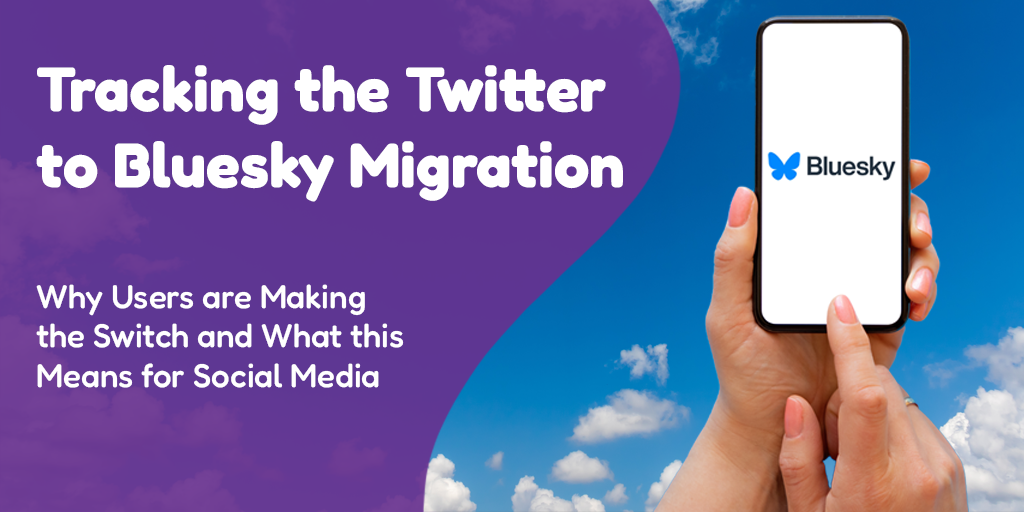 Posted by Logan Snyder on June 1st, 2020
Posted by Logan Snyder on June 1st, 2020This year, although we have not yet lived through half of it, has already been one particularly rife with crises. Speaking from a global perspective: A global pandemic is an immense stressor on every single sentient being on this planet. Speaking from a US perspective: We are a young country, still fighting out who we are and who we want to be. Speaking personally: I have more thoughts and feelings about this than would fit here, but I am going to restrict this post to a very narrow topic, and that is how we handle business social media in a time of crisis.
When it comes to managing social media, it can be difficult to predict when an external problem may arise that you need to address on a business account, and this sometimes means making hard decisions under pressure. We like to give our clients the opportunity to address heavy issues on their social media channels, if desired, or allow us to handle them. If you’re reading this post, you’re probably wondering how best to handle social media right now. Here are some tips to help you make decisions, and avoid seeming out of touch or tone-deaf.
#1 Understand that not all people will have the same vision as you
Perhaps the most important thing to understand is that, for a business, taking a public stance on a divisive issue is a risk. No matter what you say, endorse, or do, someone will not agree with you and may take that out on you publicly in the comments of a post, on their own social media feed, or elsewhere. This is why it’s important to choose your words and posts very carefully, as well as your replies to any subsequent comments. This is not to say that businesses should not take a stance on issues–in fact, a public stance on an issue can be a very powerful thing–but it is not something to take lightly.
#2 Don’t schedule posts too far ahead (any time, but especially now)
I’ve often spoken to folks about this in the context of natural disasters: If you’ve scheduled a post on fall fashion that happens to go live at the same time news breaks of a terrible hurricane, you look insensitive. If you’ve scheduled a lot of posts at a time when there is a global, national or local crisis in action, you may have a lot of content waiting in the wings that will seem insensitive or oblivious when published. Review any pre-scheduled content with a critical eye, and consider rescheduling it to a later time.
#3 Be sensitive to the topics
Generally speaking, major events don’t happen in a vacuum–they’re happening for a reason. Not all businesses will need to address every crisis situation, but some will. For example, this post specifically is driven by the confluence of a global coronavirus pandemic along with civil unrest in the US due to racial injustice and specifically police brutality. Understanding the reasoning why a crisis event is happening is important in order to create content that will appear sensitive and nuanced. Not everyone will agree with your personal take, and being sensitive to the variety of views is important when you’re crafting content that will represent a business. Educating yourself with information from a variety of sources will help you write content that is appropriate to your business and clientele, without appearing ignorant or trite.
An example of topic sensitivity during this pandemic: Many people are in self-isolation and quarantine right now. We have adjusted many of our managed business’ posting habits to avoid driving people towards travel or unnecessary in-person activities. Many of these normally-great posts that may have been prepared during different circumstances can be used later–they won’t go to waste. If you have pre-prepped content that you now can’t use, don’t toss it, save it.
#4 Avoid the appearance of opportunism
It is important to avoid the appearance of cashing in on a crisis–that’s never a good look for anyone, especially a business entity. Take care in how you market products for coronavirus-related needs, keeping in mind that some readers will have lost family members to the virus. If you’re using hashtags in posts, be aware of how they’re being used by others; some aren’t appropriate to use unless you are taking a particular stance on an issue.
#5 If you do tackle it head on, be prepared
If you feel strongly about making a public statement about a public issue, you will want to be prepared. You are likely to see both solidarity and pushback. Some people hold the opinion that businesses should not be political and may resent you taking a stance at all. Be prepared to take on a variety of commentary; preparing a variety of responses for yourself will help you respond in a professional manner.
#6 Don’t respond to comments
After making your initial post, you may see some comments in solidarity with you, while others will slam you. Unless you can keep a cool, neutral head while responding to comments, you should avoid replying altogether. Arguing with people on the internet, publicly, is never a good look for a business. We also do not recommend deleting posts, as that tends to result in backlash and escalation.
#7 Share resources for people that want to help to be able to
An excellent way of posting about a crisis scenario that will both do some actual good, and also reduce some of the risks to a business in making a public statement, is to very deliberately create content that is NOT about you. Some forms this might take include sharing donation links (make sure they’re correct!) or sharing information for people to learn more about an issue or situation (reach for minimally-biased sources!). This type of content is particularly useful when you want to be sure to avoid appearing opportunistic, or where you want to acknowledge a situation without endorsing a particular viewpoint.
How are YOU handling social media posting in 2020?
Do you have a particular formula for handling contentious content in your business social media? Have you seen a company handling this particularly well, or especially poorly? Do you have questions about social media management in times of crisis? We’d love to hear from you in the comments section.
Credit to Aimee Cozza for help in developing this post.




